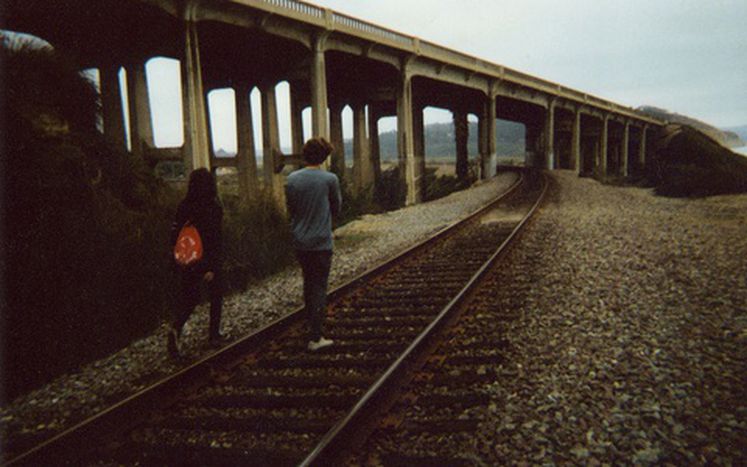
Catalonia: The collision course of independence
Published on
Translation by:
Hayley WoodYesterday the Catalonian government - who have described their independence process as an unstoppable train- announced that their proposed referendum will take place on 9 November 2014 and ask two questions: Do you want Catalonia to be a state? If yes, do you want it to be an independent state? But the Spanish government says that the consultation will not go ahead. A train crash seems inevitable.
So it finally left the station, the train which is supposedly driving Catalonia towards a head-on collision with Spain at some indefinite, unpredictable moment over the coming year. The train's engine, the referendum on independence, has been instigated by a 100% Catalan consortium. Aboard the train are the Catalan nationalist coalition, CiU- the executive director, the left-wing independence party ERC as the head of dream engineering, the Ecosocialist party ICV-EUIA is to bring a qualified workforce and some small investment (risk-free, of course), and finally the radical left-wing independence party CUP, whose local support will ensure the democratic quality of the seats from the passengers' point of view.
Which station to alight at?
This train, which, disappointing the more optimistic of Spanish hopes, started its journey from Barcelona to Madrid on 1 February, is made up of two coaches. Or rather, two questions. Those wishing to board the front coach, predictably crammed, will need to buy a ticket to 'The State' (supposedly federal, though this is not specified), but this does not mean there will be anyone waiting for the passengers who alight at this unilateral station. For the most daring passengers, those who purchase the second ticket, their final destination awaits with a crash, a giant leap and an arrival at the 'Independent State'.
Assuming of course that there is no sudden derailment due to the wear and tear on the track or the sabotage of a government civil servant. Even before the news of the train's departure, Spain opted for the Serbian tack, making threats left right and centre: "If there has to be a crash, let it be against a constitutional wall, that's if we don't manage to blow up the train in its path at some judicial stop over." Nothing new here.
So what does the world think of the latest Iberian mess?
On the other side of the channel, both the English and the Irish press have limited themselves to describing the situation. Although the most conservative media outlets have made the Government's veto headline news while the rest have opted for more neutral headlines, coverage of the news has been in general fairly impartial, particularly in light of the fact that the country faces a Scottish independence vote due to take place just before the Catalan poll.
The BBC does highlight the steady determination of the Catalan parties to crash their train and even Reuters notes that it would be difficult to stop the vote whilst it is taking place. But no-one in the UK seems to be afraid of the Catalan independent train. They did invent the railways after all!
The French press, traditionally more reticent than the English when it comes to such issues, continues to lean toward the Spanish government. The headline in Le Monde thus focuses on the organisation of the independence vote as an "imbroglio" and reports the statement made by the president of the European Council, Hermann Van Rompuy, who confirmed that any separate state would become a third party in relation to the EU and made short work of the latest protest from the supporters of the Catalonian Constitution. This is generally the view held by all the major media outlets in France, with the exception perhaps of Libération, which remains more impartial.
In Germany, where they are more used to passing judgement on results than hopes and wishes, the news went almost unnoticed except by one of the country's leading newspapers, the Süddeutsche Zeitung. They reported that the Catalan local government had scheduled the referendum for 9 November 2014. They explained how this would work - if you vote for independence, you have to choose between one of the two destinations detailed above, The German newspaper also noted the economic weight of Catalonia within the state as well as its inhabitants' wish for fiscal and financial autonomy.
On the other side of the pond, the New York Times followed the line of Reuters and added their own interpretation: "Will it be a dead-end?" asked the New York daily, highlighting Spain's decision to veto the vote and putting the Catalan situation - which it compared to that of Scotland - in the context of a rise in such independence movements back in the old continent.
The country's second newspaper, the Washington Post, wrapped up the issue with news from the Associated Press. The story contrasted the Spanish government's intransigence with the compromising approach of the Catalan administration. It also compared Catalonia's autonomy within Spain with the status of Puerto Rico as a part of the United States, despite the fact that both states have little in common in terms of political recognition.
Translated from Catalunya: Un tren llamado referéndum



